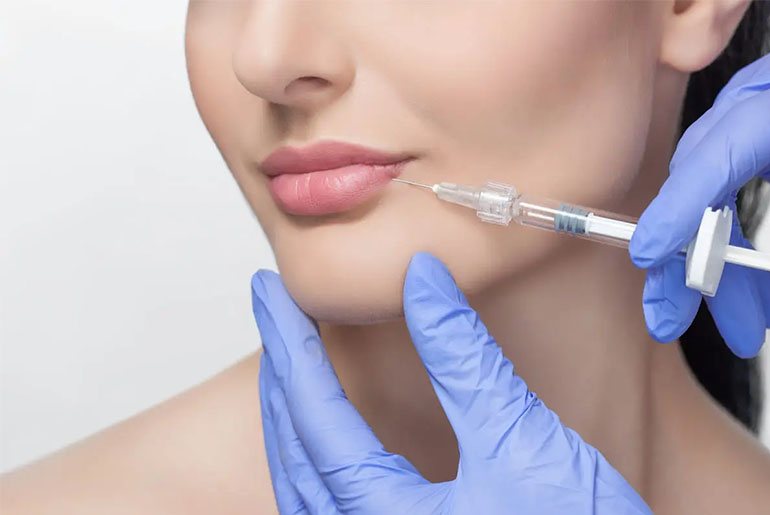Disclaimer: There are affiliate links in this post. At no cost to you, I get commissions for purchases made through these links.
These days, hyaluronic acid is becoming more and more famous for its great benefits in skincare that women trust. However, when breastfeeding, your body is more sensitive. The forbidden list includes many ingredients that you may not know all.
So, can you use hyaluronic acid while breastfeeding? This natural substance is safe for mothers during nursing if applied to the skin.
Let’s learn more about the nature, benefits, and proper use of hyaluronic acid!
Is Hyaluronic Acid Safe While Breastfeeding?
When you are breastfeeding, you need to be careful about any chemical exposure. That is why many mothers wonder about the safety of Hyaluronic Acid while breastfeeding.
The problem that you need to be aware of is that active ingredients have a high absorption rate and are more likely to dissolve into your bloodstream. Some products nursing moms need to avoid include retinoids and salicylic acid.
A Harvard study showed that this natural substance is well tolerated when applied to the skin. It does not cause side effects, or irritation and passes into the bloodstream. Therefore, topical Hyaluronic Acid is entirely safe for breastfeeding women.
However, injecting or absorbing HA from the gastrointestinal tract is entirely different. There is currently not much research demonstrating the safety of this natural substance when tolerated through supplements or needles.
It’s best to consult your doctor before trying injectable or oral therapies while breastfeeding.
Benefits Of Hyaluronic Acid
Hyaluronic acid (HA) is a hydrophilic molecule and exists naturally in our bodies. It can absorb and retain 1000 times its weight in water.
Thanks to this ability, HA becomes a vital component to retain moisture in the body. It accounts for up to 50% of the skin’s hydration.
It takes your body longer to produce this natural substance as you age. That’s why many people want to use skincare products with this ingredient.
You can find Hyaluronic Acid in various products such as serums, moisturizers, lip balms, and sheet masks. It has three uses: topically, orally, or by injection.
You can use the injection for both lips and face. It is also capable of reducing joint pain and improving mobility effectively.
Many people also use Hyaluronic Acid to combat dry eyes and maintain moisture in their eyes through eye drops.
Why is HA so important? What are the specific effects of this natural substance on the skin? Find out in the following part.

1. Hydration
The primary role of HA is to provide and maintain moisture. It does that by drawing water into your skin.
This process will support the skin’s natural moisture barrier to ensure a healthy complexion. If this barrier is damaged, it creates an opportunity for bacteria to enter, causing dermatological problems.
The good news is that this natural substance is safe and non-irritating for all skin types, including sensitive skin. So, you can add them to your daily skincare routine.
2. Wound Healing
You can also use HA for wound healing. When the body has damage that needs repair, HA levels rise.
This natural substance can help wounds heal faster by stimulating the body to build more blood vessels in the injured area and fighting inflammation.
Several studies have also demonstrated the ability of this moisturizer to heal skin wounds. You can also apply it to open wounds, thanks to its antibacterial properties.
Another role it plays is its ability to cure gum disease or speed up healing after surgery. You can apply it to sores in your mouth to make them heal quickly.
However, there aren’t many studies demonstrating the same effects when taking HA supplements compared to serums and gels. You should consider carefully consulting your doctor before use.
3. Anti-Aging
As you age, your body takes longer to produce HA, causing your skin to become dry, saggy, and wrinkled. Fight these signs of aging with a topical hyaluronic acid supplement.
The effect of light is another notable cause. In fact, exposure to UV radiation causes an average of 80% of skin aging.
The most effective prevention is to use SPF year-round, even on cloudy days. UV rays will reduce HA on the skin, so you won’t want to overexpose it.

6. Lip Filling
Many people also use Hyaluronic Acid on the lips in two different forms: topical and direct injection. Its function is similar to that of your skin.
When applied to the lips, it will retain moisture so that the lips are always plump and full. When you inject it as a filler, HA gives you luscious lips for years.
The effect of fillers can be detected immediately or after up to 7 months from use. Because of the effect of the needles, it will take one to two days for your lips to reduce swelling and return to their more natural shape.
Are There Any Risks To Using Hyaluronic Acid?
Since this is a natural substance produced in the body, it has an excellent neutralizing ability and does not cause many side effects.
The most common problem is allergic skin reactions. According to the research by the PMC US National Library of Medicine, the reason is that your body thinks HA is a foreign substance it needs to fight.
You can tell if your body will react before using the product. If not, consider postponing testing for new substances during breastfeeding.
Another study also showed that HA molecules with lower molecular weight could cause inflammation when penetrated deep into the skin. It will cause irritation and dryness.
If you notice any of the above symptoms after use, stop immediately and consult your doctor. Everyone’s body is different, so please consult the experts.
FAQs
If you have any questions regarding HA and how to use them, find the answers.
Is It Safe To Use Hyaluronic Acid Every Day?
You can use this natural substance every day to provide essential moisture to the skin. The key is that you need to use it properly.
As a rule, the skin needs to be clean and moist before coming into contact with this acid. You will then use facial oil and lotion to lock in moisture.
Do not use this natural substance over moisturizer or sunscreen. It can cause moisture to evaporate from the skin barrier.
Also, this serum will work best when used with a moisturizer. It will ensure the necessary moisture for dry skin.
Who Should Not Take Hyaluronic Acid?
This substance has a reasonably high level of safety when experts do not report any side effects. The body produces it naturally, so the risk of an allergic reaction is shallow.
However, people with a history of cancer or suffering from cancer should avoid supplementing it. Some studies show that cancer cells are sensitive to this substance and will grow faster when exposed to it.
Hyaluronic acid injections and oral administration are much more likely to cause side effects than topical application.
What Should You Not Use HA With?
To protect your skin, limit the use of HA serums with any products with highly acidic ingredients such as fragrance or alcohol.
Additionally, you can mix HA with almost any type of ingredient. Meanwhile, it would help if you were careful when combining retinol with certain kinds of vitamin C, beta hydroxy acids, beta hydroxy, and alpha-hydroxy acids.
Should You Apply Hyaluronic Acid At Night Or Morning?
Unlike harsh skincare ingredients like vitamin C or retinol, topical Hyaluronic Acid is very soothing. You can use them both morning and evening.
Many experts also recommend using a HA serum up to twice daily. Choose the right course according to your skin condition.
You can also use the mask intermittently to enhance the moisturizing effects of HA. The best time to use it is before going to bed.
What Happens If You Use A Lot Of Hyaluronic Acid?
For those with dry skin and living in hot, dry tropical areas, HA may not be an effective skincare solution.
If you don’t use it properly, your skin will get drier. This acid draws moisture from many places it finds it, especially the skin’s deeper layers, to hydrate the surface.
Dry areas don’t have too much moisture. Therefore, using too much HA will make the skin dry and crack more quickly.
Conclusion
To conclude, hyaluronic acid is safe to use while breastfeeding. If you use HA topically, it is entirely safe for you and your baby’s health.
With the exception of some rare allergic reactions, we highly recommend this product. No one will be able to deny the moisturizing, anti-aging, and healing effects of this natural substance.
Contact your personal medical professional for advice to ensure maximum safety and avoid unwanted consequences.



